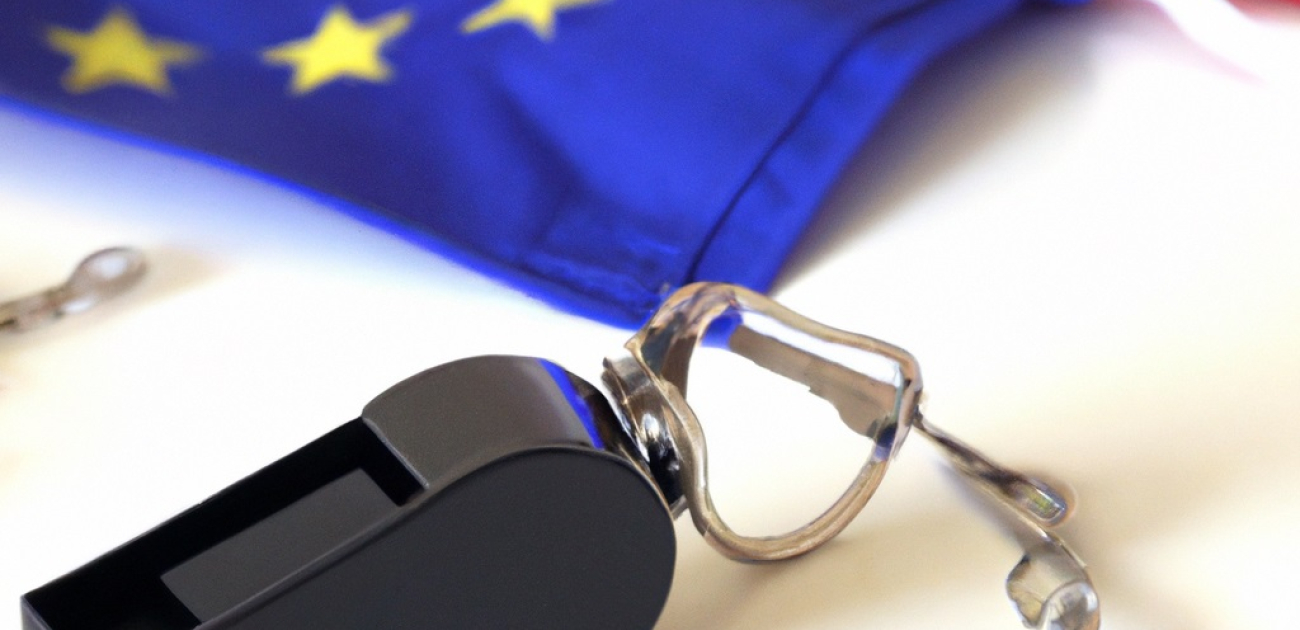The Protection of Whistleblowers in the European and National Regulatory Landscape
Introductory notions
The term “Whistleblower” refers to an individual who, within a public or private employment context, becomes aware of violations of national or European Union law and decides, in order to safeguard the public interest or the integrity of the public administration or private entity, to report such violations to the competent supervisory body.
European Legislation
At the international level, there is increasing recognition of the need to effectively provide protection for whistleblowers.
The EU Directive 2019/1937 of the European Parliament and of the Council of 23 October 2019 (hereinafter “the Directive”) represents, at the European level, the regulatory source on Whistleblowing.
The Directive aims to protect whistleblowers, who play a "decisive role in reporting and preventing such violations and in safeguarding the welfare of society".
With regard to the extension of the scope of application of the Directive, its purpose is to establish common rules for the member states that strengthen the support granted to whistleblowers.
Who is protected by the Directive?
The Directive specifically identifies the persons to whom it applies, i.e. employees or self-employed persons, shareholders and persons with administrative, management, control or representative functions, any person working under the supervision and direction of contractors, subcontractors and suppliers.
The protective measures also extend to all persons connected in a broad sense to the organisation in which the breach occurred and who may fear retaliation in view of the situation of economic vulnerability in which they find themselves (e.g.: former employees; trainees; volunteers; facilitators - i.e. those who assist the worker in the reporting process; colleagues and relatives of whistleblowers etc.).
What obligations do companies have?
The Directive requires legal entities in both the public and private sectors to set up internal whistleblowing channels, which are appropriate to guarantee the confidentiality of the person of the whistleblower.
It follows that companies must be equipped with channels that are suitable for receiving information, that are managed securely and that provide feedback to the whistleblower within a reasonable timeframe.
The Directive also places an obligation on Member States to establish external reporting channels, designating competent authorities to receive, acknowledge and follow up on reports' and providing them with adequate resources.
Protection measures for whistleblowers
Chapter VI of the Directive contains a series of articles aimed at identifying all the measures that Member States are obliged to adopt in order to ensure whistleblowers the highest degree of protection and support following a whistleblowing, as well as appropriate confidentiality.
In particular, the necessary measures must be taken to prohibit any retaliatory act against the whistleblower, as a result of the report made, including indirect forms of discrimination, such as negative performance appraisals, lack of promotion or negative references.
Support measures for whistleblowers have also been introduced, such as the possibility of accessing:
- to comprehensive and independent information and advice, easily accessible to the public and free of charge, on the procedures and remedies available for protection against retaliation and on the rights of the person concerned;
- effective assistance from the competent authorities in protecting against retaliation;
- legal aid in cross-border criminal and civil proceedings;
- financial assistance and support, including psychological support, in legal proceedings.
Italian Legislation
On 15 March 2023, Legislative Decree No. 24, implementing EU Directive 2019/1937 on the protection of persons who report breaches of Union law, was published in the Official Gazette No. 63.
The Decree has a considerable impact on the private sector, untying the latter from the system provided for by Legislative Decree No. 231/2001. In fact, according to the legislation in force until now, only those entities that had an organisational model pursuant to Legislative Decree No. 231/2001 had to comply with the obligations of the system in question.
Legislative Decree No. 24/2023, on the other hand, provides that, in addition to companies adopting a 231 organisational model, all companies exceeding the size threshold of 50 employees in the last year and Entities operating in certain sectors (services, financial products and markets, and prevention of money laundering and terrorism financing) will be required to comply with the Whistleblowing discipline.
In accordance with the provisions of the European Directive, Article 4 of the Legislative Decree of 2023 stipulates as mandatory for companies the establishment of an internal reporting channel, with regard to reporting and the confidentiality of the identity of the reporter.
Article 7 of the same Decree recognises the role of ANAC (national anti-corruption authority) as an external channel, in the event of a malfunctioning of the internal channel or fear on the part of the whistleblower of retaliation in the event that he or she uses the internal channel.
Besides, unlike the provisions of Legislative Decree No. 231/2001, the ANAC is granted the power to issue administrative pecuniary sanctions.
The provisions of the Decree will take effect as of 15 July 2023. For private sector entities that have employed, in the last year, an average of up to two hundred and forty-nine employees, under permanent or fixed-term employment contracts, the obligation to establish the internal reporting channel shall take effect as of 17 December 2023.
Pending the entry into force of the Decree, all companies, both for reasons of size and in relation to the activities carried out, will have to initiate a gap analysis activity, aimed at ensuring the effective compliance of their internal system with the provisions of the legislative decree in question.
***
In conclusion, the role of whistleblowers, and consequently their protection, are means of fundamental importance for the achievement of a greater degree of application of Union law and domestic law, in various sectors affecting both the economy and the social fabric of the Member States, which will therefore have to ensure that the legal entities to which the Whistleblowing legislation is addressed adopt the measures prescribed by law as soon as possible.

